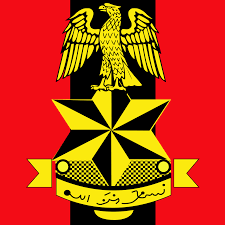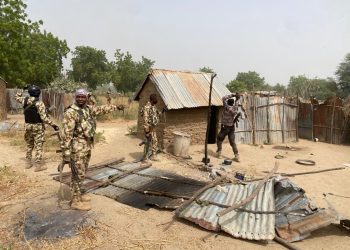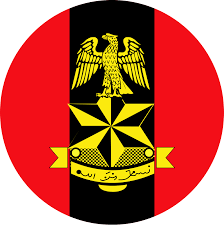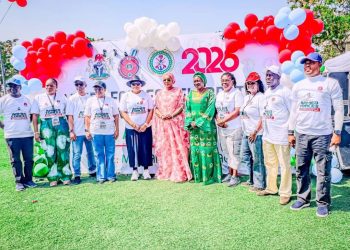By Nkechi Eze
On July 6, 2025, the Nigerian Army marks 162 years of its existence, a historic milestone for one of Africa’s oldest and most battle-hardened militaries. With its genesis tracing back to 1863, when 18 indigenes of Nigeria were organized into a local force to support the British West African Frontier Force, the Nigerian Army has evolved into a formidable and professional land force, holding firm to its constitutional responsibility of defending Nigeria’s sovereignty, territorial integrity, and national interests.
For over a century and a half, the Nigerian Army has remained a steadfast pillar of national unity, rising to defend the country through colonial struggles, post-independence challenges, internal and external conflicts, and the modern threat of asymmetric warfare. Its history is a rich tapestry woven with sacrifice, courage, adaptation, and a constant pursuit of excellence in the face of evolving security dynamics.
From Colonial Force to National Symbol
What began as a colonial constabulary tasked with enforcing imperial interests gradually transformed into a national army with a patriotic mandate following Nigeria’s independence in 1960. The Army’s first significant internal test came during the Nigerian Civil War (1967–1970), a conflict that not only reshaped the structure of the Army but also forged its identity as the guardian of Nigeria’s unity.
In the decades that followed, the Nigerian Army emerged as a key player in regional stability, contributing troops to peacekeeping missions under the Economic Community of West African States (ECOWAS), the African Union (AU), and the United Nations (UN). From Liberia and Sierra Leone to Darfur, Mali, and the Central African Republic, Nigerian soldiers have stood in defence of African peace and stability, earning respect and recognition globally.
Professionalism in the Face of Evolving Threats
In its 162-year journey, the Nigerian Army has transformed from a conventional colonial battalion into a multi-dimensional force capable of addressing modern-day threats. In recent years, the force has confronted and suppressed several insurgent and terrorist groups, notably Boko Haram and its splinter factions such as ISWAP, whose activities had once destabilized Nigeria’s northeast and threatened regional peace.
Under the current leadership of the Chief of Army Staff, Lieutenant General Olufemi Oluyede, the Nigerian Army has made renewed strides in professional conduct, civil-military relations, operational excellence, and transformation. Through initiatives like “Operation Hadin Kai” in the Northeast, “Operation FASAN YAMMA” in the Northwest, “Operation SAFE HAVEN” in the North Central, “Operation DELTA SAFE” in the South-South, and “Operation UDO KA” in the Southeast, the Army has continued to degrade criminal networks and safeguard critical national infrastructure.
The quarterly briefings of the Defence Headquarters and routine operations updates show the sheer breadth of the Army’s engagements, from counter-terrorism and anti-banditry operations to anti-kidnapping missions, peace enforcement, and strategic humanitarian interventions. The Nigerian Army remains at the forefront of internal security operations, often stepping in to reinforce civil authority and respond to emergencies ranging from natural disasters to electoral logistics.
Investing in Training and Modernization
Recognising that professionalism is rooted in knowledge and readiness, the Nigerian Army has prioritized training, retraining, and international cooperation. Institutions like the Nigerian Defence Academy (NDA), the Nigerian Army War College, the Nigerian Army School of Infantry, and the Nigerian Army College of Logistics and Management have continued to serve as hubs of doctrinal development and strategic thinking.
The Army has also embraced technology in warfare, investing in drone surveillance, improved communication systems, and more agile force mobility platforms. Collaborations with foreign partners such as the United States, the United Kingdom, Brazil, Pakistan, and Turkey, among others, have enriched the Army’s capacity-building efforts and enhanced the tactical acumen of its officers and men.
Additionally, special units like the Nigerian Army Special Forces and the Deep Blue Project liaison with the Navy in the Gulf of Guinea region exemplify the growing capability of the Nigerian Army to function in joint operations and multi-domain scenarios.
Civil-Military Relations and Corporate Social Responsibility
Beyond combat roles, the Nigerian Army continues to build bridges with civilian communities through civil-military cooperation programs. Medical outreaches, community development projects, renovation of schools and boreholes, and youth engagement activities across the country to help build trust and promote mutual respect between soldiers and civilians.
Annual events like the Nigerian Army Day Celebration (NADCEL), Remembrance Day, the Armed Forces Retreat, and sporting engagements with communities, showcase the softer side of military professionalism and the Army’s role in fostering national integration.
Under the leadership of successive Chiefs of Army Staff, and now General Oluyede, the Army has also taken mental health, welfare, and post-service life of personnel more seriously. Improved barracks infrastructure, housing projects, better healthcare, and educational support for soldiers’ children reflect the force’s evolving understanding of morale as a critical component of operational effectiveness.
Challenges and the Way Forward
Despite these gains, the Nigerian Army is not without its challenges. The persistence of asymmetric threats, sabotage by internal collaborators, occasional issues of misconduct by personnel, and the need for improved equipment and intelligence capacity still confront the Army. However, its continuous adaptation, coupled with growing inter-agency cooperation, indicates a trajectory of resilience.
The current posture of the Army emphasizes not just battlefield victories, but also the importance of information warfare, psychological operations, human rights adherence, and the protection of civilians in conflict zones. In recent years, the Army has increased transparency in its operations, allowing media coverage of engagements and maintaining open lines of communication with stakeholders.
A Future Anchored in Legacy and Resolve
As the Nigerian Army turns 162, it does so with the weight of history on its shoulders and the hope of a secure Nigeria in its crosshairs. It carries forward a legacy of national service, built on the sacrifices of countless heroes who paid the supreme price for peace, stability, and the dream of one united nation.
In honouring the past, the Army continues to prepare for the future. A future where technology, intelligence, training, and public trust converge to create a modern, accountable, and effective fighting force.
At 162, the Nigerian Army is not just a symbol of defence, but a representation of Nigeria’s resolve to remain sovereign, united, and free from terror and tyranny. And in every corner of the country, from the creeks of the Niger Delta to the Sambisa Forest, from the rocky plateaus of Jos to the bustling streets of Lagos, the Nigerian Army stands as a sentinel of the republic, and a guardian of her destiny.















